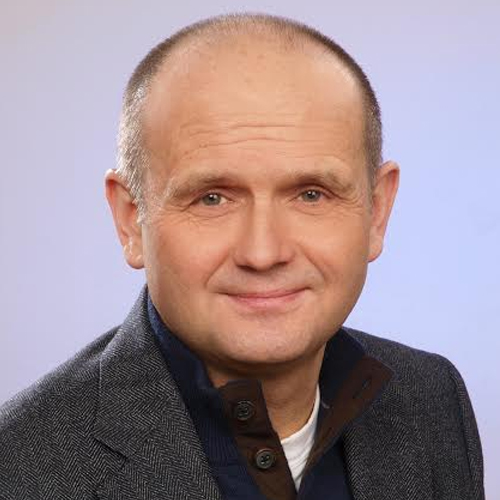 Maarten de Rijke is full professor of Information Processing and Internet in the Informatics Institute at the University of Amsterdam. He holds MSc degrees in Philosophy and Mathematics (both cum laude), and a PhD in Theoretical Computer Science. He worked as a postdoc at CWI, before becoming a Warwick Research Fellow at the University of Warwick, UK. He joined the University of Amsterdam in 1998, and was appointed full professor in 2004.
Maarten de Rijke is full professor of Information Processing and Internet in the Informatics Institute at the University of Amsterdam. He holds MSc degrees in Philosophy and Mathematics (both cum laude), and a PhD in Theoretical Computer Science. He worked as a postdoc at CWI, before becoming a Warwick Research Fellow at the University of Warwick, UK. He joined the University of Amsterdam in 1998, and was appointed full professor in 2004.
De Rijke leads the Information and Language Processing Systems group, one of the world’s leading academic research groups in information retrieval. During the most recent computer science research assessment exercise, the group achieved maximal scores on all dimensions. His research focus is on intelligent information access, with projects on self-learning search engines, semantic search, and social media analytics.
A Pionier personal innovational research incentives grant laureate (comparable to an advanced ERC grant), De Rijke has helped to generate over 40MEuro in project funding. With an h-index of 53 he has published over 650 papers, published or edited over a dozen books, is the Editor-in-Chief of ACM Transactions on Information Systems and of Springer’s Information Retrieval book series, (associate) editor for various journals and book series, and a current and former coordinator of retrieval evaluation tracks at TREC, CLEF and INEX. He was co-chair for SIGIR 2013, general chair for ECIR 2014, co-chair “web search systems and applications” for WWW 2015, short paper co-chair for SIGIR 2015, and program co-chair for information retrieval for CIKM 2015. He is also general co-chair of WSDM 2017.
He is the director of Amsterdam Data Science and of the University of Amsterdam’s Ad de Jonge Center for Intelligence and Security Studies. He’s a former director of the Intelligent Systems Lab (ISLA) and of the Center for Creation, Content and Technology (CCCT).
The retrieval and language technology developed by his research group is being used by organizations around the Netherlands and beyond, and has given rise to various spin-off initiatives.
Lecture: Information Retrieval Foundational Models and Concepts




